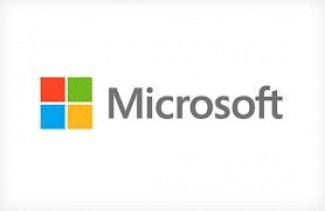For all of the talk about Microsoft Corporation (NASDAQ:MSFT)‘s sudden irrelevance in tech, this is a company that still produces tons of cash every quarter. However though, investors are nonetheless frustrated that Office and Windows continue to rake in the lion’s share of Microsoft’s revenue. The problem? These two franchises are no longer sexy. With PC sales on the decline, this concern in justified. Then again, on the heels of Microsoft’s Q2 report, there are now signs that things are about to change.
As much as Wall Street still values Microsoft Corporation (NASDAQ:MSFT)’s influence on tech, analyst would love the company more if it were under new management — let’s first make that clear. While the company is able to boast solid cash flow, it does not have a reputation for effectively deploying its capital — at least not to the extent that it’s able to produce the growth that Wall Street craves.

Likewise, although net income was weak, shedding almost 3% year over year, it reverses a 22% EPS decline in the first quarter. Bears will point out that these declines underscore Microsoft’s critical dependence on PCs. Though this might be true, that revenue grew 34% sequentially suggests that there’s an uptick on this reliance.
Besides, the Windows division picked up the slack this time, posting $5.9 billion in revenue, up 24%. This comes after a 33% decline in the first quarter. Microsoft Corporation (NASDAQ:MSFT) said it sold 60 million licenses of its newest operating system, Windows 8, which led to a 14.4% increase in operating income.
Surprising performances from recent launches
Windows 8, which was launched in October, had come under fire due to disappointing initial sales results. But the quarter told a different story. It was also encouraging that the company’s new Surface tablet, which has shown to struggle against Apple Inc. (NASDAQ:AAPL)‘s iPad, performed better than expected. This is even though Samsung’s Galaxy Tab and Amazon.com, Inc. (NASDAQ:AMZN)‘s Kindle Fire have been considered the only true threats.
In that regard, Microsoft’s improved unit sales had a noticeable effect on Apple’s disappointing Q1 results, which also revealed meaningful gross margin compression of 38.6%. By contrast, Microsoft Corporation (NASDAQ:MSFT)’s gross margins came in stronger than expected at 73.5%, beating Street estimates by 50 basis points.
Also, consider that even though Apple posted $13.81 per share — beating estimates of $13.34 — Apple missed on revenue. Likewise, that Apple sold (only) 47.8 million iPhones in the quarter was considered “soft,” as buy-side analysts were looking for 50 million. This means that even though Apple remains the leader, there’s a noticeable shift in the tide. If Apple is not careful, it could turn into a tsunami.
But Apple just proved it knows what’s at stake by having recently announced the availability of a new iPad with storage capability of 128 GB. Apple is now targeting the corporate user. Plus this announcement comes just as Microsoft Corporation (NASDAQ:MSFT)is due to launch its second version of the Surface tablet called Surface Windows 8 Pro. In other words, the chess game is about to get more interesting.
Will the cloud and enterprise ever strike back?
One of the most popular cited bear arguments against Microsoft has been its declining enterprise leverage. But the company did well in the quarter, growing server and tools revenue by 9% to $5.19 billion. The question, though, is how well should investors expect this business to perform going forward? And will it be enough to fend off rivals such as Oracle Corporation (NASDAQ:ORCL) and the dominant salesforce.com, inc. (NYSE:CRM)?
Microsoft is making strides, as evidenced by the 40% year-over-year aggregate improvement in online services. But it’s not yet profitable, including a $647 million loss this quarter. The good news is that revenue just recently grew 11%. On the other hand, Microsoft lost 10% in the business division, which includes Office. By and large, this is the reason for the Street’s frustration.
As noted, the reliance on the PC business remains and Windows and Office won’t stay dominant for long. Microsoft will need to develop more profitable franchises. This urgency is great, especially since Microsoft has yet to show any clear strategies toward the cloud.
While the Azure platform looks OK, it is not yet ready to rake in the cash to needed to supplement weakness in Office and Windows, even though margins in that market are understood to be better. Meanwhile, this has not escaped Oracle and Salesforce, which are seen as more nimble and better prepared.
Foolish bottom line
All of that said, it’s hard not to like Microsoft at current levels, particularly with these recent improvements. Despite the bearish tone on the Street, there’s still plenty of value in the stock. But for that value to be realized, investors will have to wait longer than they would like.
With time, fair value can reach $35, or 20% higher. Then again, patience should not be that difficult since Microsoft offers one of the best yields on the market at 3.3%. As has been the case for a while now, value is not the problem. But Microsoft has more work to do to change sentiment.
The article Against Tough Odds, There’s Still Value in This Tech Giant originally appeared on Fool.com and is written by Richard Saintvilus.
Fool contributor Richard Saintvilus owns shares of Apple. The Motley Fool recommends Amazon.com, Apple, and Salesforce.com. The Motley Fool owns shares of Amazon.com, Apple, Microsoft, and Oracle.
Copyright © 1995 – 2013 The Motley Fool, LLC. All rights reserved. The Motley Fool has a disclosure policy.




